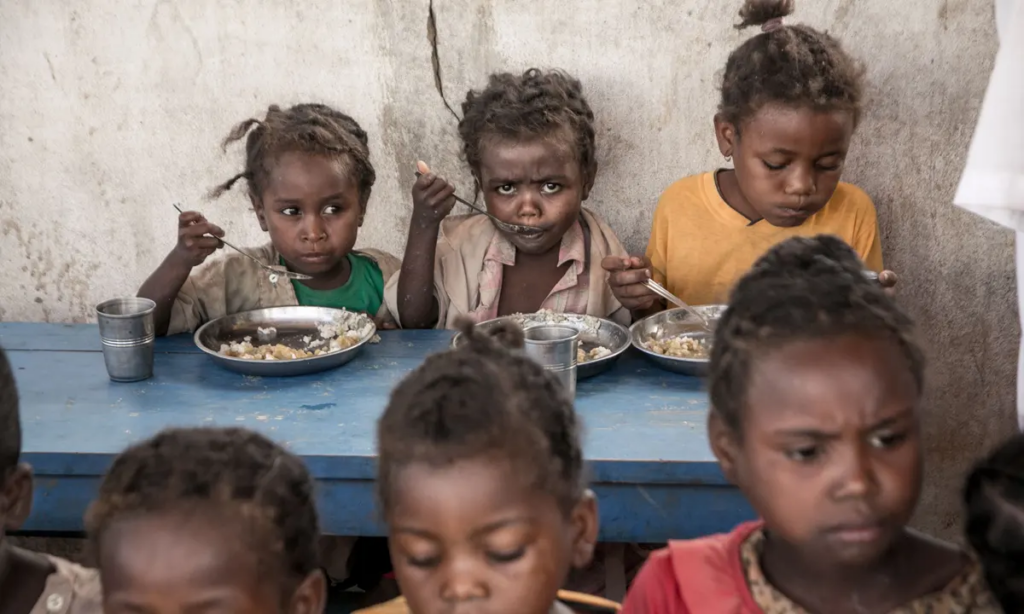According to the survey, 2/10 newborns may be hungry 2023
Nearly two of every ten infants and toddlers in India are at risk of going an entire day without eating, according to a study that also reveals that this measure of food insecurity has hardly changed since 2016.
The percentage of children aged six to twenty-three months who had not consumed any food with substantial caloric content for at least one day increased from 17.2% in 2016 to 17.7% in 2021, according to a study.
The statistics showed something unexpected: six- to 23-month-olds went 24 hours without food. SV Subramanian
Researchers who extracted data from the Union health ministry’s nationwide family health surveys have generated India’s first estimates for the prevalence of “zero-food” children, highlighting the need to redesign food policies in order to reach the most vulnerable households.

The study was conducted by S.V. Subramanian, a professor of population health at the Harvard School of Public Health. “The data contained something unusual and unexpected — we do not expect young infants between six months and 23 months to go 24 hours without eating,” he said.
“We do not know the duration of deprivation for each sampled child; this is a limitation of the data. However, we would expect a child to receive at least some sustenance for an entire day,” Subramanian explained. The absence indicates acute food shortage.
In at least 20 states, zero-food prevalence rates decreased between 2016 and 2021. However, increases in others, such as significant increases of 10 percentage points in Uttar Pradesh and 12.9 percentage points in Chhattisgarh, have offset these gains, resulting in an increase in the national average.
Conventionally, India’s progress against malnutrition has been measured by decreases in the prevalence of child stunting and atrophy.
Wasting measures weight forage, while stunting measures height for age. Both are considered proxies for malnutrition.
As evidence of increases in child nutrition, the Centre cited the National Family Health Surveys of 2015-16 and 2019-21, which revealed a decline in stunting from 38.4% to 35.5% and in wasting from 21% to 19.9%.
However, Subramanian and his associates examined the survey data in search of a direct measure of food consumption. The surveys, which sampled over 600,000 households, asked what foods infants aged six to twenty-three months had consumed in the previous twenty-four hours.
In both the 2016 and 2021 surveys, respondents were asked whether they had consumed a variety of solid and liquid substances as a child. A child who answered “no” to all food-related inquiries received no sustenance in the previous 24 hours.
In India, an estimated 5.9 million infants aged six to twenty-three months will be without sustenance in 2021, according to the analysis. Assam had the highest prevalence of zero-food minors (27.4%), followed by Chhattisgarh (24.6%), Jharkhand (21%), Rajasthan (19.8%), and Uttar Pradesh (27.4%). (19.4 per cent).
Bengal is one of approximately 20 states where the prevalence of infants with no sustenance has decreased since 2016. In Bengal, the proportion decreased from 12.1% in 2016 to 7.5% in 2021. Goa experienced the greatest decline, from 18.9 percent to 5.1 percent. The findings of the investigation have just been published in eClinicalMedicine, a journal in The Lancet family.
India has multiple food and nutrition initiatives to combat child malnutrition, including one that provides children aged six months to three years with food supplements containing 500 calories and 12 to 15 grams of protein per day as take-home rations.
Subramanian stated that while the study has highlighted the need to improve such initiatives in order to reach the most socially disadvantaged households, the unexpected discovery of a substantial proportion of children with no food indicates the need to adopt direct measures of food nutrition rather than relying primarily on stunting and wasting.
According to the researchers, there is an imperative need for “precision in food policies” if India is to achieve the 2030 UN-adopted objectives of ending hunger and ensuring access to secure nutrition and sufficient food for all.



